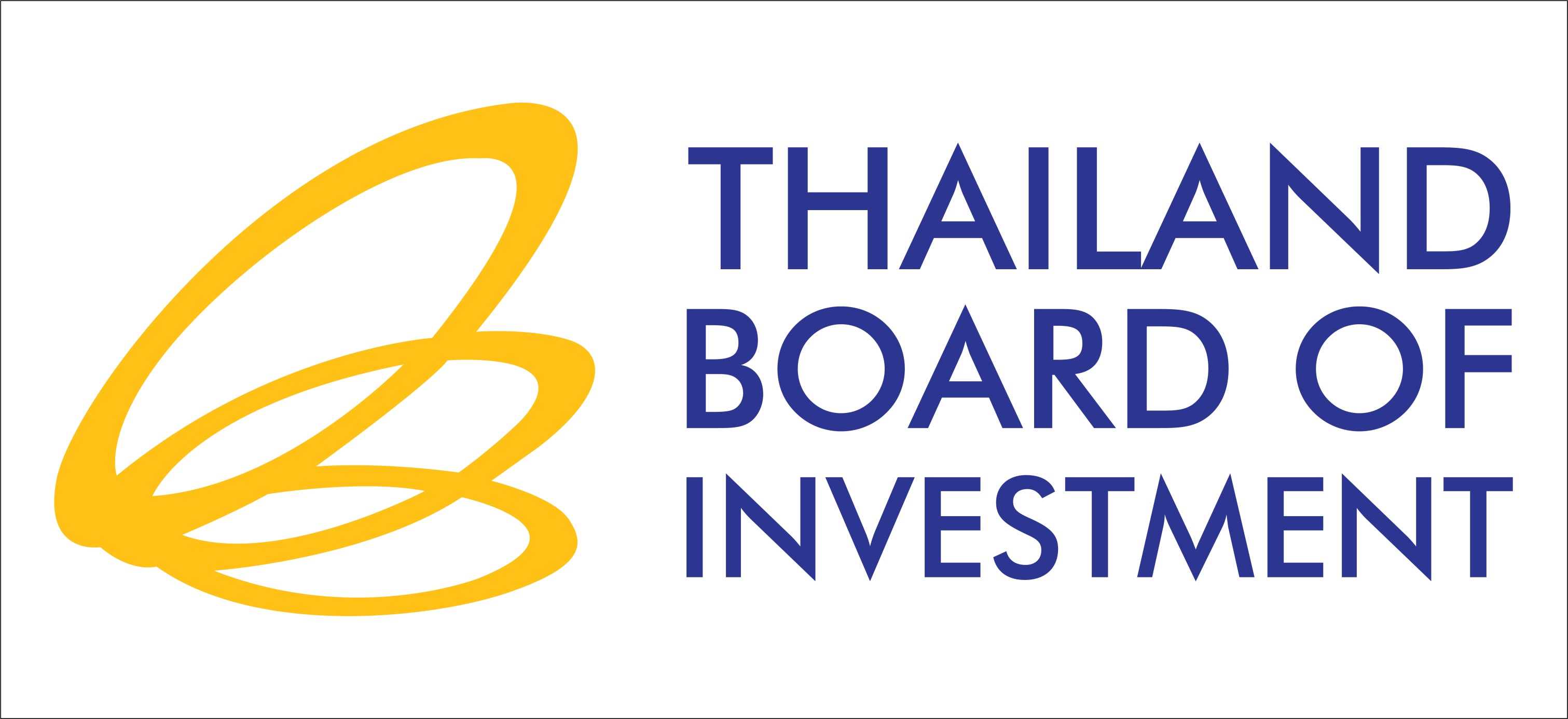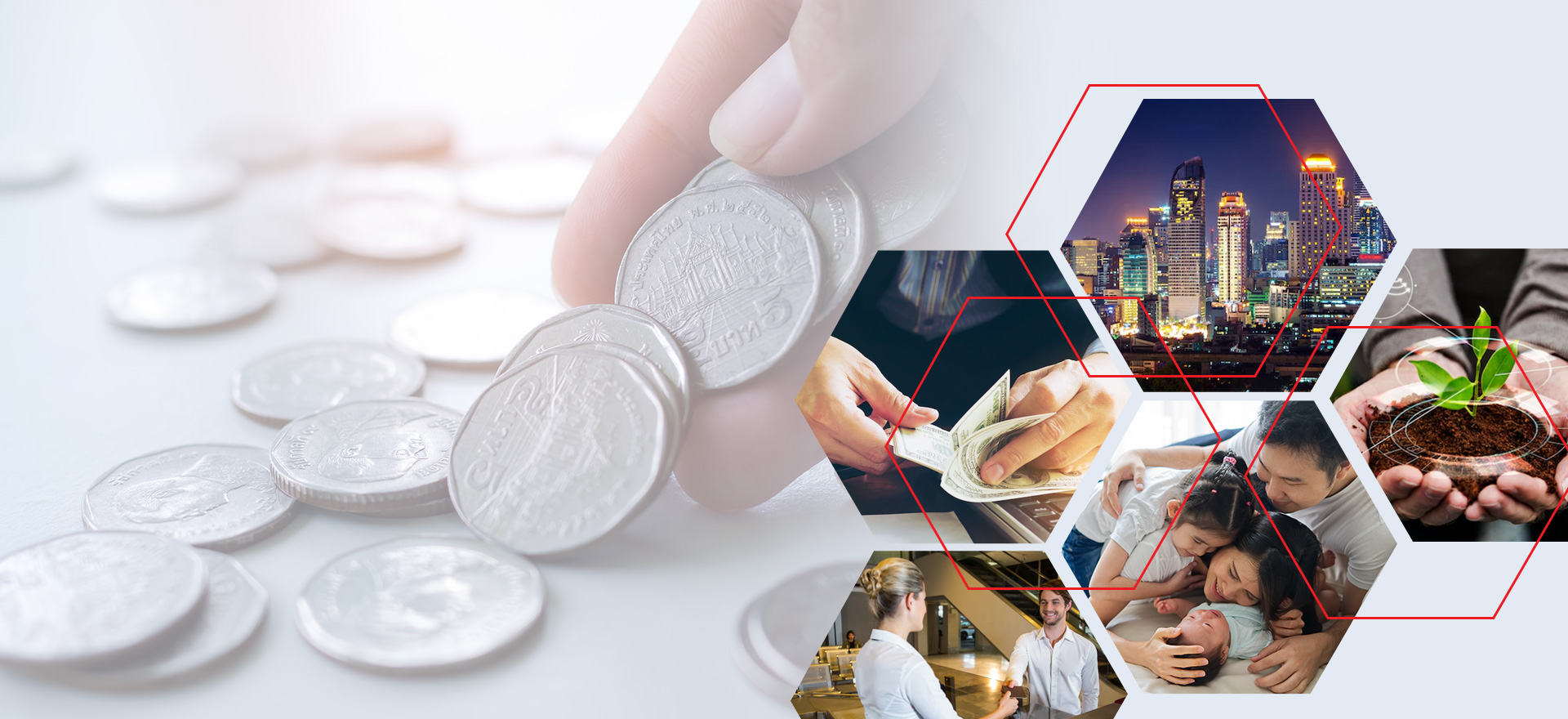Consumer goods/Nestlé Thailand
Consumer goods/Nestlé Thailand
Editorial staff
Nestlé Thailand, a leading consumer goods manufacturer, has allocated 4 billion baht to expand its manufacturing facilities for all UHT products in Navanakhon and its Purina petcare manufacturing in Rayong during 2024-2026.
The company has set its five-year investment plan by allocating 8 billion baht to expand its manufacturing facilities of all UHT products and petcare products during 2021-2026. Of the total, 6 billion baht has gone to petcare business and the remaining belongs to all UHT products. It is expected that 4 billion baht was spent during 2021-2023 and another 4 billion baht will be used during 2024-2026.
The continuous expansion of both product categories is to cash in on the growing demand of Milo, Bear Brand, S-26, and Carnation brands, as well as Nestlé Purina dry and wet super-premium cat food petcare products.
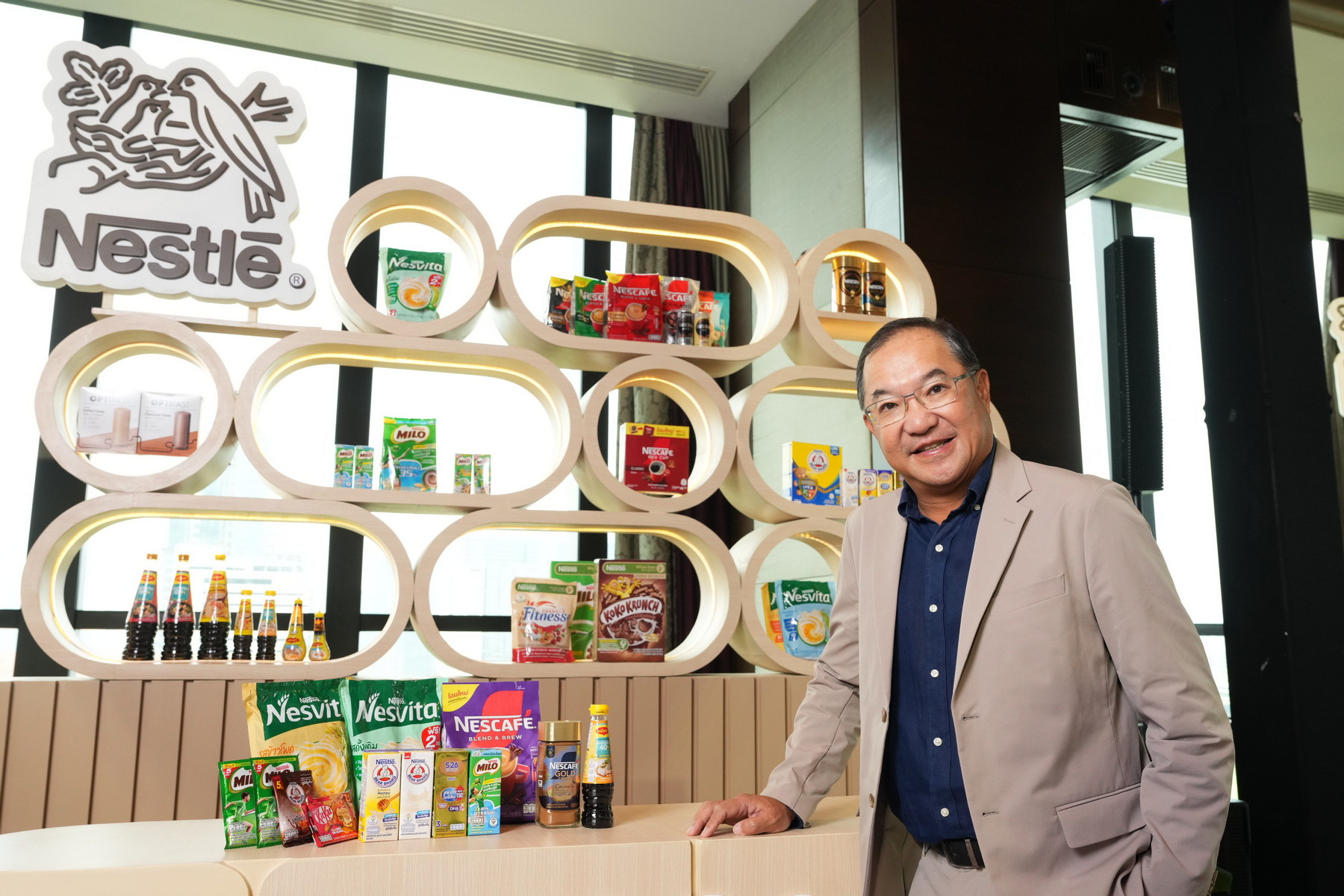
Victor Seah
“We see constantly growth of petcare during the Covid-19 period till now. Petcare business grew by double while the UHT products grew by 30%. We believe that both UHT and petcare products will continue to grow in the future especially petcare product because about 60% of Thai population feed their pets with human food. Therefore, if we communicate these people on pet nutrition, it will drive business petfood business forward,’’ Victor Seah, chairman and CEO of Nestlé Indochina, said.
The manufacturing of petcare in Rayong will use advanced technology to offer a wider variety of tastes and product formats for pet lovers domestically and abroad including Asean market, Australia and Japan.
Mr Seah said this year Nestlé Thailand will continue to drive its two strategies, Good for You and Good for the Planet, which are fundamental to Nestle’s strong business growth as they serve the demands of consumers, today and for generations to come.
According to global consumer research conducted by Nestlé and Kantar in 2022, 91% of Thai respondents want to eat well and feed their families a balanced diet. However, only 42% of Thai respondents can achieve the ideal balanced diet.
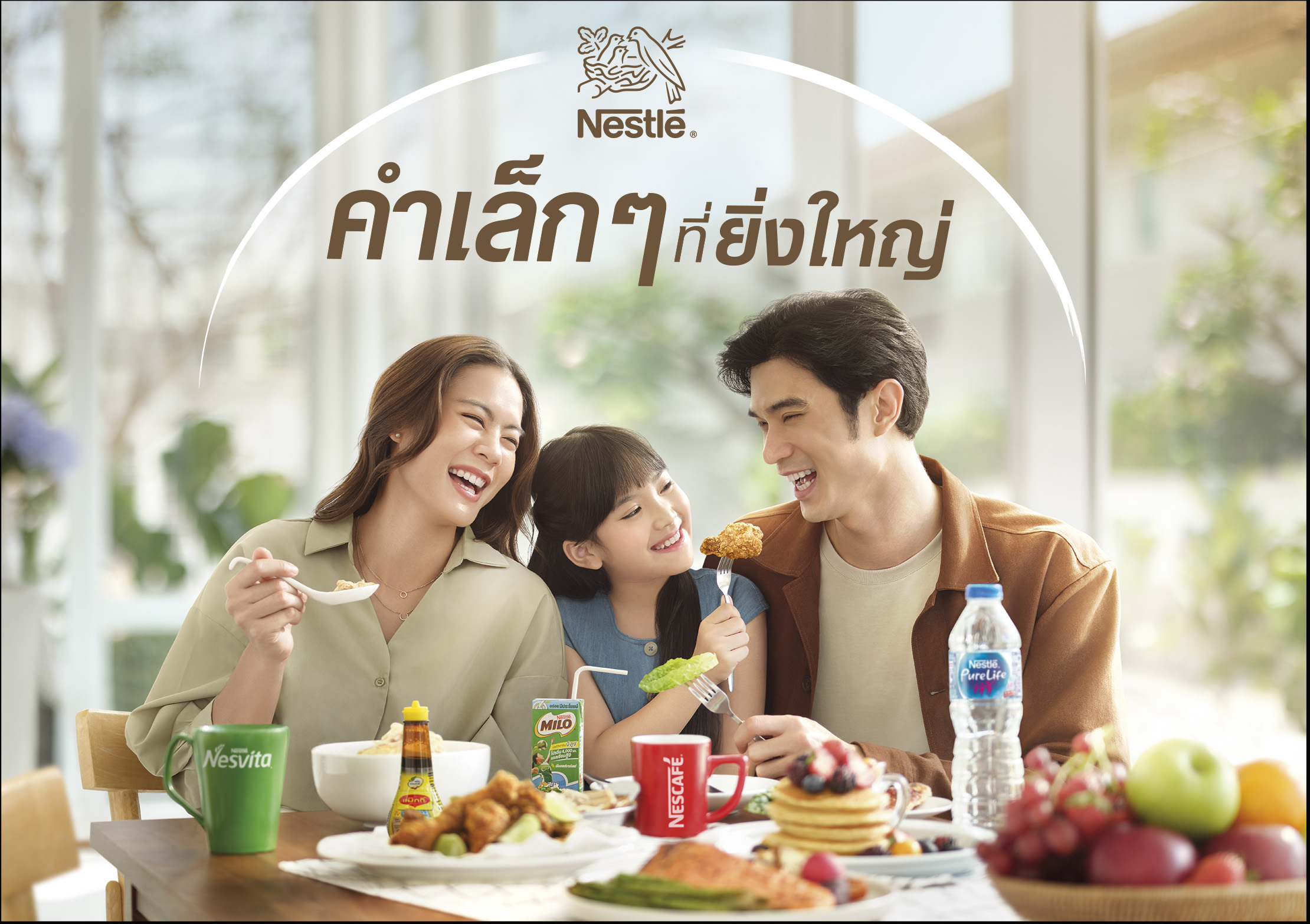
The top three barriers preventing Thai people from doing this start with affordability, as they perceive healthy food as too expensive. Another barrier is the need to treat themselves and leave room for small pleasures. Lastly, they have no time to prepare or cook healthy food because of their daily routines.
“We will continue to drive the growth for every product category and also continually sharpen our product portfolio to support a balanced diet and healthy lifestyle while encouraging and inspiring people to achieve balanced consumption by making small and sustainable changes for a healthier body and mind,” he said.
Nestlé accelerates growth for every product category with two key strategies.
The first strategy is to “Grow a Healthier Portfolio,” which includes the Everyday Goodness and Tailored Nutrition product groups. Nestlé will continue to provide healthier options, increasing the number of products certified with the Healthier Choice Logo by continually reducing the amount of sugar and sodium they contain while enhancing taste and nutrition.
The company currently has over 100 products that feature the Healthier Choice Logo, the highest number of products certified among all F&B companies in Thailand.
Nestlé is also fortifying products with micronutrients including infant nutrition products, dairy products, and some products for adults. In addition, the company focuses on offering affordable solutions by developing nutritious products at affordable prices.
“Though the world’s economic situation will impact to the higher price of product cost and energy, we will confront with this challenging by responding quickly with the usage of digital technology for more efficient business management. We believe in constantly growth of food and beverage products due to it is necessary daily good,’’ he said.
The second strategy is to “Guide with Balanced Choice” for the mindful indulgence product group. Nestlé is reformulating its indulgent products and guiding people towards a balanced diet so they can enjoy these products in moderation.
For example, all children's ice cream products are 110 kilocalories or less, and all multi-serve products from this category will have clear front-of-pack portion guidance.
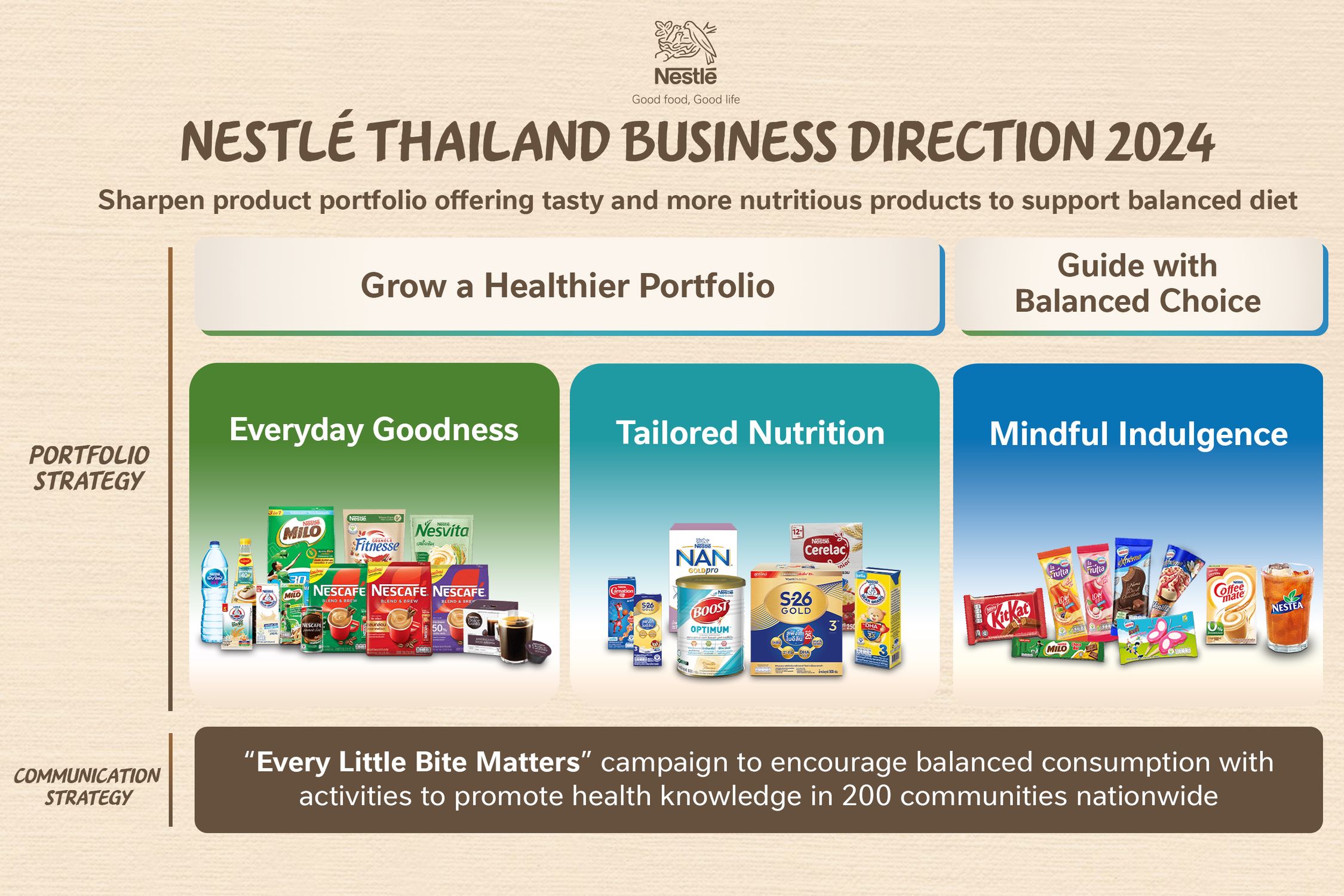
Nestlé drives its strong commitment to protecting, renewing, and restoring the environment. As of now, 96% of Nestlé Thailand’s packaging is designed for recycling. All coffee beans and fresh milk the company uses are 100% responsibly sourced.
In addition, the company continues to support coffee farmers and dairy farmers. Its water stewardship efforts have achieved a remarkable outcome, with 100% water regeneration at its Ayutthaya water bottling factory. Nestlé Thailand is also on track to achieve its carbon reduction targets as planned.
“With our Good for You and Good for the Planet strategy, we will continuously taking sustainability actions to deliver on our Net Zero goal by 2050,’’ he said.
23 April 2024
Viewed 143 time
 EN
EN 

